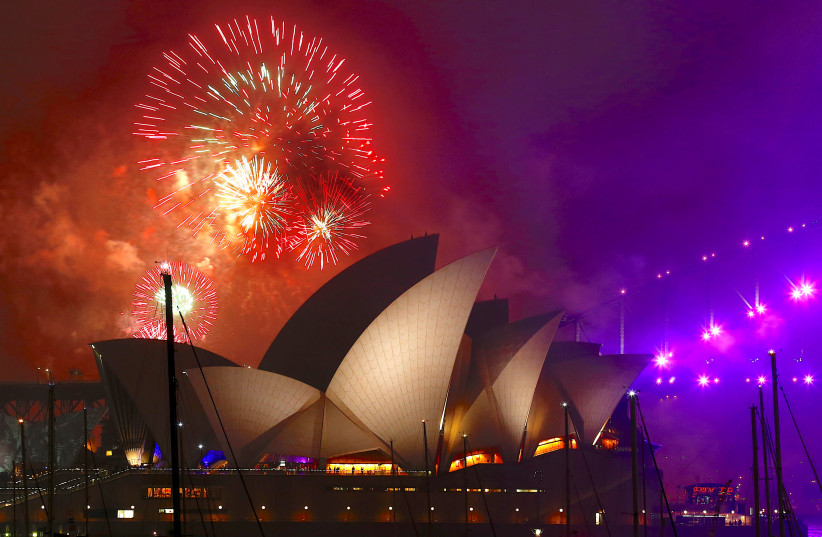“The power above is set in motion by the impulse from below, even as vapor ascends to form the cloud. If the community of Israel did not first give the impulse, the One above would not move to meet her, for yearning below makes completion above” (Zohar, Gen. 35a).
“The power above is set in motion by the impulse from below, even as vapor ascends to form the cloud. If the community of Israel did not first give the impulse, the One above would not move to meet her, for yearning below makes completion above.”
Zohar, Gen. 35a
I have always believed that the secret of Jewish survival is exemplified in the life of my maternal grandmother, of blessed memory, whom I never met. She died when my mother was only seven years old, the second-youngest of the 11 children my grandmother bore. Young as she was, my mother – Sarah Rebecca Opas – never forgot her or the spirit of Yiddishkeit she had left behind.
Her name was Mila, and she was betrothed to my grandfather David from the age of three, when her parents in Plotsk, Poland, called her in from playing outside to tell her that when she grew up, she was to marry the little boy next door. This was in the early 1800s when betrothals were arranged by the parents as a matter of course. It was the time of pogroms in Europe (has anything changed?). When he reached the age of 17, David informed his parents he was leaving to go the The New World and had secured a job on a sailing ship. “What about Mila?” he was asked. “I will send for her when I get settled,” he assured them. “No, you won’t – you’ll take her with you.” So Mila, aged 16, and David, aged 17, were married by the rabbi before sailing to the New World, which David believed to be America but was in fact Australia.
The sailing ship took six months to reach Port Adelaide in Australia. David was hired to be a handyman on the boat, and his first job was to look after the food. As there was no refrigeration then, the whole supply of meat was lowered on cables into the ocean, where the salt water would preserve it. However, David failed to secure it properly, and it all sank to the bottom of the sea – no meat for the crew for the entire trip. His next job on board was to sew the sails if they were torn in the strong winds. He had no idea how to sew, so his young wife did it for him, as well as keeping the captain and crew’s clothing repaired.

Before they reached Australian shores, Mila was already expecting her first child.
Both having come from Orthodox homes, it was a terrible shock to them when they landed. No synagogues, no kosher butchers, no established Jewish communities. They settled in a little country town, Bombala, near the border between Victoria and New South Wales. David opened a store to provide fodder and dry goods to the farmers in the surrounding districts. Gradually, as they learned English, the business prospered enough to give the family a comfortable lifestyle. But Mila’s heart was always sad because she didn’t know how to keep her family Jewish. There were no other Jews for the children to meet and marry.
But she made a plan. She heard that there was a small Jewish community in the big city of Sydney. As each of her older children turned 18, she would travel to Sydney and stay there until she found a Jewish boy or girl willing to go back with her to her town and marry one of her children, sight unseen. Her love of her Jewish heritage was such that achieving this became the most important part of her life, and she was extremely successful. Of the 11 children, only one of them married a non-Jew, and that was because he immigrated to America. There were no divorces. Sadly, Mila died of scarlet fever at a relatively young age, before penicillin was invented, which would have saved her life.
My mother and her little brother were raised by the older sisters, who by then were all married. They never let her forget her mother and the importance of remaining Jewish even in near-impossible situations where Jewish rituals were almost nonexistent.
In retelling her story to me so many years later, my mother always stressed that the Jewish soul is unquenchable. No matter how far one strays from observance, the spark remains and is something precious that must be cherished and passed on from generation to generation. By making my home in Israel, becoming an observant Jewish woman, and being blessed with 18 Israeli grandchildren and more than 30 great-grandchildren here, I hope my mother can be at rest. It is so much easier here, where Jewish ritual is our survival system. ■
The writer is the author of 14 books. Her latest novel is Searching for Sarah.’ dwaysman@gmail.com
